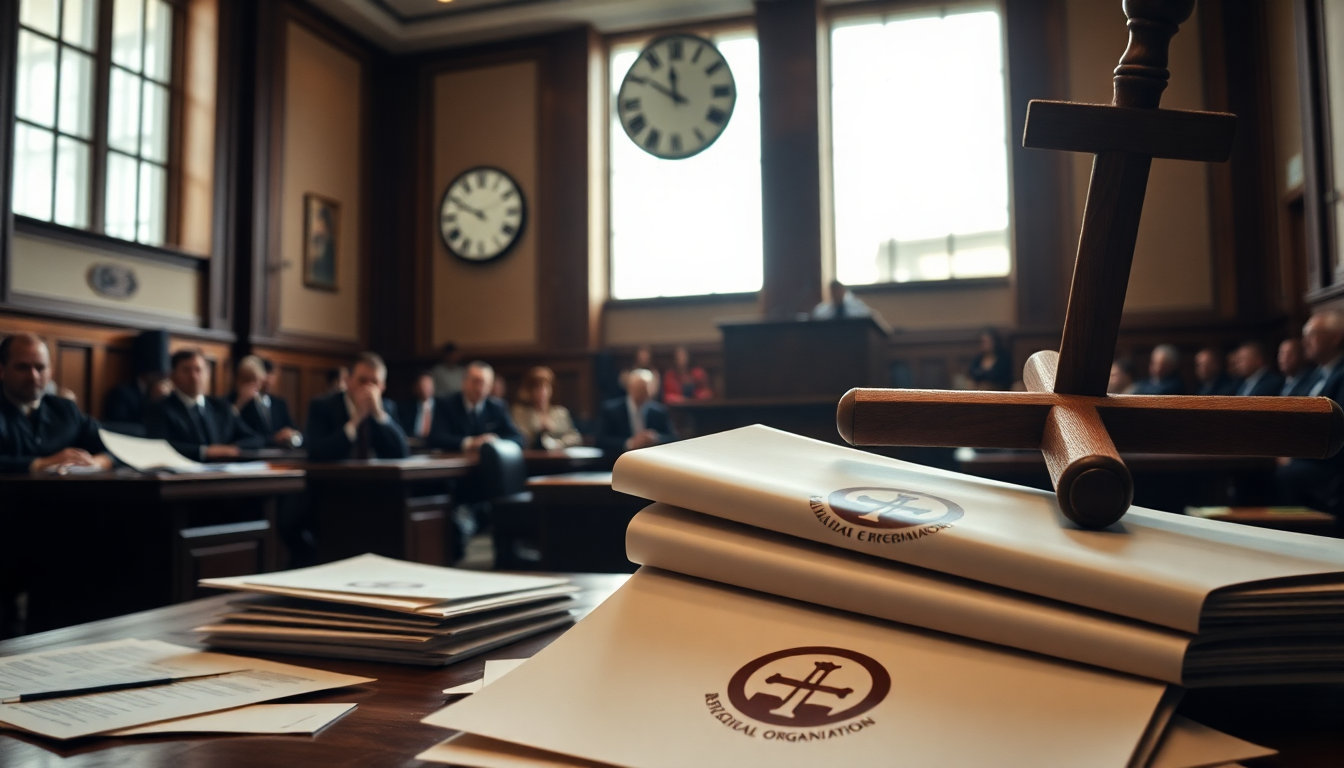Table of Contents
The intersection of religion and politics can be a hot-button topic, especially when allegations of wrongdoing come to light. Recently, investigators have accused a religious organization of trying to score political favors by offering illicit campaign contributions and gifts to former first lady Kim Keon-hee. This scandal has sparked a media frenzy and raised pressing questions about the accountability of both religious and political entities. In the midst of these serious claims, the widow of the church’s founder, Han, released a rare video statement, firmly denying any involvement in these alleged activities.
Allegations of Political Favoritism
Investigators allege that the church was involved in illegal campaign financing to sway political outcomes in favor of specific candidates. These claims suggest a systematic effort to secure political favor through financial means, which raises serious ethical questions. What does this mean for the integrity of our democratic processes? The implications of such actions could lead to broader discussions about the influence of religious organizations in politics and the potential risks to democratic values.
In her video address, Han strongly refuted these allegations, stating, “False information is being spread that, under my instructions, our church provided illegal political funds.” Her emphatic denial is crucial, as it aims to safeguard the church’s reputation amid growing scrutiny. But can a single statement really quell the storm of public opinion?
Though the blending of faith and politics is nothing new, it becomes particularly controversial when money is involved. This investigation underscores the urgent need for transparency and accountability in both arenas. As the inquiry unfolds, it will be interesting to see how these allegations play out and what consequences might arise for those involved.
The Response from Church Leadership
In light of the accusations, the church’s leadership has taken a defensive approach, reinforcing their commitment to ethical practices. Han’s insistence on her innocence is a calculated move to protect the church’s image and reassure its followers. But how do they plan to maintain influence while navigating the tricky waters of political engagement?
Additionally, the church’s public relations strategy seems focused on distancing itself from anyone who may have acted unethically. This is critical for preserving the trust of their congregation and the broader community. The real challenge lies in addressing these allegations while keeping a strong narrative that highlights their mission and values.
As investigations progress, it’s vital for the church to communicate proactively and provide compelling evidence of their innocence. This might involve independent audits or transparency initiatives to demonstrate their commitment to ethical conduct. But will that be enough to regain public trust?
Broader Implications and Future Considerations
The allegations against this church aren’t just about individual misconduct; they raise larger questions about the relationship between religious organizations and political systems. As society becomes more polarized, the potential for conflicts of interest is magnified. Could the outcome of this investigation set a precedent for how similar cases are handled in the future?
This situation also opens the door for a broader discussion about the role of money in politics, especially concerning how religious organizations might influence political processes. Stakeholders are challenged to reflect on the ethical implications of such interactions and the importance of regulatory frameworks governing campaign financing. Are we prepared to tackle these tough questions?
As this situation develops, many will be watching closely to see how the church navigates ongoing scrutiny and what measures they’ll implement to ensure compliance with legal and ethical standards. The fallout from these allegations could lead to significant changes in how religious organizations engage with political entities moving forward. What do you think will happen next?


